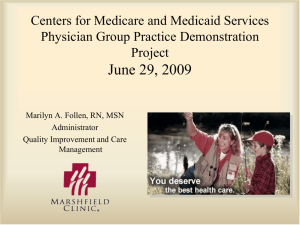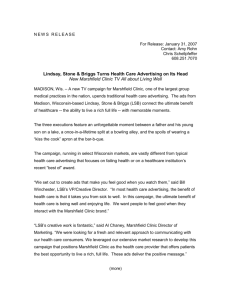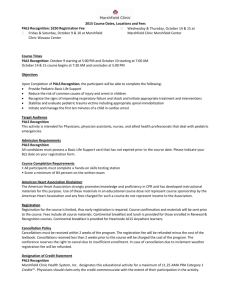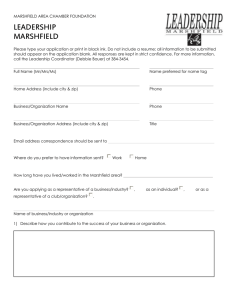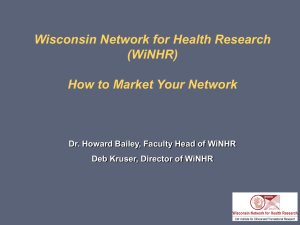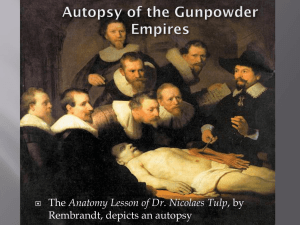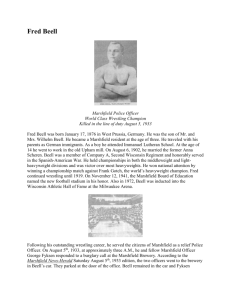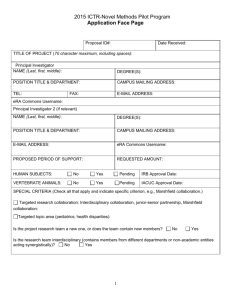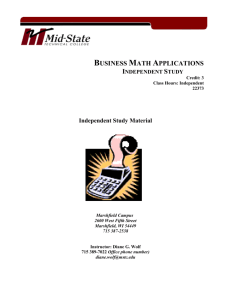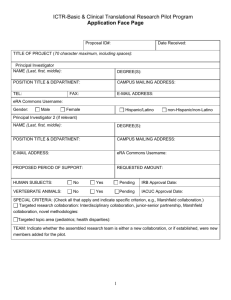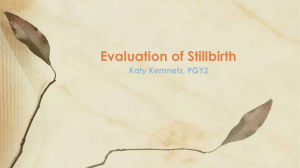Finding answers for your patients
advertisement
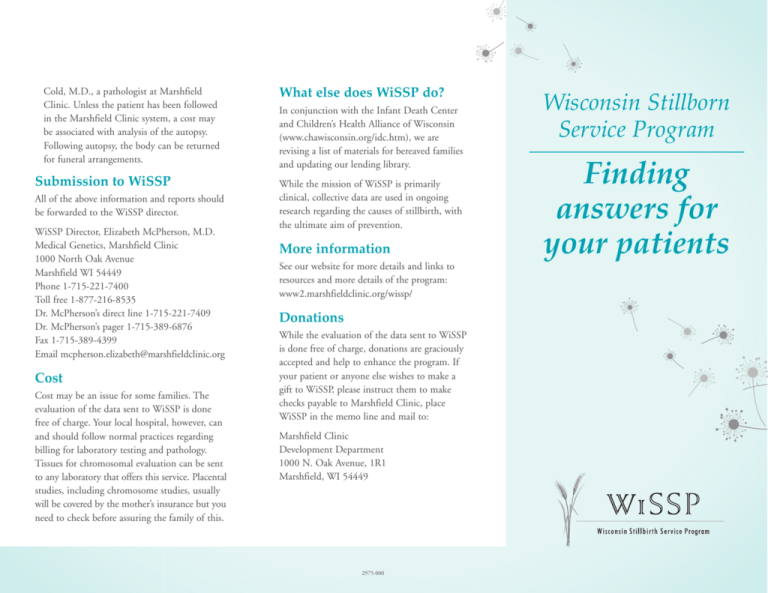
Cold, M.D., a pathologist at Marshfield Clinic. Unless the patient has been followed in the Marshfield Clinic system, a cost may be associated with analysis of the autopsy. Following autopsy, the body can be returned for funeral arrangements. Submission to WiSSP All of the above information and reports should be forwarded to the WiSSP director. WiSSP Director, Elizabeth McPherson, M.D. Medical Genetics, Marshfield Clinic 1000 North Oak Avenue Marshfield WI 54449 Phone 1-715-221-7400 Toll free 1-877-216-8535 Dr. McPherson’s direct line 1-715-221-7409 Dr. McPherson’s pager 1-715-389-6876 Fax 1-715-389-4399 Email mcpherson.elizabeth@marshfieldclinic.org Cost Cost may be an issue for some families. The evaluation of the data sent to WiSSP is done free of charge. Your local hospital, however, can and should follow normal practices regarding billing for laboratory testing and pathology. Tissues for chromosomal evaluation can be sent to any laboratory that offers this service. Placental studies, including chromosome studies, usually will be covered by the mother’s insurance but you need to check before assuring the family of this. What else does WiSSP do? In conjunction with the Infant Death Center and Children’s Health Alliance of Wisconsin (www.chawisconsin.org/idc.htm), we are revising a list of materials for bereaved families and updating our lending library. While the mission of WiSSP is primarily clinical, collective data are used in ongoing research regarding the causes of stillbirth, with the ultimate aim of prevention. More information See our website for more details and links to resources and more details of the program: www2.marshfieldclinic.org/wissp/ Donations While the evaluation of the data sent to WiSSP is done free of charge, donations are graciously accepted and help to enhance the program. If your patient or anyone else wishes to make a gift to WiSSP, please instruct them to make checks payable to Marshfield Clinic, place WiSSP in the memo line and mail to: Marshfield Clinic Development Department 1000 N. Oak Avenue, 1R1 Marshfield, WI 54449 2975-000 Wisconsin Stillborn Service Program Finding answers for your patients Stillbirth: Finding answers for your patients As a provider caring for pregnant women, you anticipate the joy of assisting with a healthy birth, but you may feel less prepared for the one in 150 births (about one a day in Wisconsin) in which the baby is born still. In addition, up to 3 percent of all pregnancies end with a second trimester miscarriage. In the shock surrounding these sudden tragedies, your job is not only to support your patient, emotionally as well as medically, but also to gather vital information that will be needed later to answer the inevitable questions: “Why did my baby die? Is it my fault? Will it happen again? and What can I do to prevent a recurrence?” Fortunately, you can turn to a service that can help get answers your patients and their families deserve. The Wisconsin Stillbirth Service Program (WiSSP) is a community-based program for the investigation of the causes of stillbirth. Since its inception in 1984, WiSSP has helped to assess more than 2,600 infants and provided diagnostic information for counseling of their families. The WiSSP director Elizabeth McPherson, M.D., is a board-certified medical geneticist at Marshfield Clinic, who has evaluated hundreds of stillbirths, including about 500 cases in Wisconsin in the past 10 years. Dr. McPherson’s work is supported in part by the State of Wisconsin Birth Defects Registry and by Marshfield Clinic. What is involved in WiSSP? When a stillbirth or second trimester loss occurs, evaluation is coordinated by the referring providers at the birthing hospital. This information is forwarded to the WiSSP director for review. WiSSP sends a summary letter to the referring provider and family, with final impressions, recommendations and recurrence risk estimates. With extensive evaluation, a cause for stillbirth can be identified in two-thirds of all stillbirths. While complete information – including clinical history, laboratory results, photos, X-rays and autopsy – is more likely to provide conclusive answers, diagnoses are sometimes possible with limited information. WiSSP will evaluate whatever information the family consents to provide. Please do remember to give the family the time they need to see and hold their baby. Delays of hours or even a day or two have only minimal effects on the chance of finding answers. Components of the complete evaluation • The referring provider completes two forms, a summary sheet and a physical exam sheet, to the best of his or her ability. A letter should be provided to each family that participates. Forms can be found on our website, www2.marshfieldclinic.org/wissp/ • Maternal history including pregnancy complications and relevant family history • Photographs of the baby, preferably a whole body frontal photo including limbs (hands palm up if possible), frontal and lateral pictures of the face and photos of any abnormalities • AP and lateral “babygram” including head and all limbs, as straight as possible and including hands and feet • Quantitative Kleihauer-Betke testing in any experienced laboratory, with results sent to the WiSSP director • Chromosome studies from the fetal side of the placenta, sent to your lab of choice. Order a tissue culture, chromosome studies, with reflex to FISH probes to assess for common aneuploidy if the culture fails to grow. Remember to ask that results be sent to the WiSSP director. If placental biopsy is not possible, postmortem fetal samples or cord blood from non-macerated fetuses ONLY are reasonable alternatives. • Placental pathology, usually done at the referring hospital, is a vital part of stillbirth evaluation. Please be sure the surgical path report is forwarded to the WiSSP director. • Encourage a full fetal autopsy. At most birthing hospitals, stillbirth is considered an indication for autopsy. Therefore, when recommended by the local provider, autopsy is usually available at no charge to the family. The WiSSP director is happy to consult via phone or email with local pathologists who encounter unusual findings. If your hospital cannot perform fetal autopsy, the fetus and placenta can be sent to Marshfield Clinic. It is essential, however, that this be coordinated through the WiSSP director or Christopher
